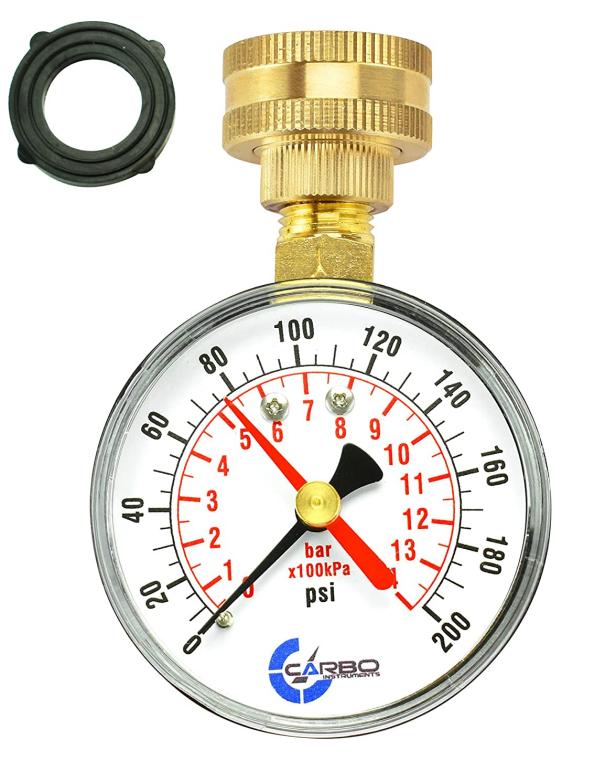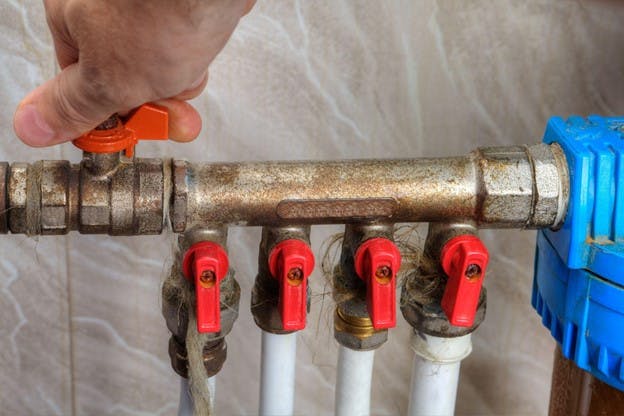Tested Strategies for Resolving Low Water Pressure in Your Home
Tested Strategies for Resolving Low Water Pressure in Your Home
Blog Article
What are your opinions on 10 Reasons for Low Water Pressure in Your House?

Low water stress in your home can be a frustrating issue, influencing every little thing from showering to washing recipes. If you're experiencing weak water flow, there are numerous possible reasons and services to discover. In this guide, we'll review usual reasons for low tide stress and functional steps to attend to the problem successfully.
Intro to Low Water Pressure
Low water stress takes place when the flow of water from your faucets, showers, and various other components is weak than normal. This can make daily tasks extra challenging and much less efficient. Comprehending the reasons for low water pressure is crucial to discovering the appropriate service.
Usual Sources Of Low Water Stress
Faulty Stress Regulatory Authorities
Stress regulators are in charge of maintaining regular water pressure in your house. If they malfunction, it can result in low water stress or unequal flow throughout the house.
Local Water Issues
Often, the issue exists outside your home. Local water issues, such as main line leakages or upkeep work, can temporarily decrease water pressure in your area.
Pipe Obstructions
Gradually, pipes can become clogged with mineral deposits, debris, or particles, limiting the flow of water. This is an usual issue in older homes with galvanized steel pipes.
Corrosion
Corrosion within pipelines can cause leakages and lowered water pressure. Rust buildup can restrict water circulation, specifically in maturing plumbing systems.
Exactly How to Detect Low Water Pressure
Checking Pipelines
Inspect noticeable pipelines for signs of leaks, rust, or blockages. Take notice of any uncommon sounds, such as knocking or rattling pipes, which could show problems within the plumbing system.
Consulting with a Plumber
If you're not able to identify the root cause of low water stress, take into consideration employing an expert plumber to carry out a thorough assessment. They can identify underlying concerns and recommend proper services.
Examining Taps and Components
Begin by checking the water pressure at different faucets and fixtures throughout your home. If the concern is isolated to particular areas, it might indicate localized troubles.
Do It Yourself Solutions to Repair Low Water Stress
Flushing Water Heater
Debris build-up in the water heater can limit circulation and decrease performance. Flushing the tank periodically helps remove debris and keep optimal performance.
Examining Pressure Regulator
Ensure that the pressure regulatory authority is functioning correctly. Adjusting or replacing the regulatory authority can help restore correct water stress throughout your home.
Cleansing Aerators and Showerheads
Natural resources can accumulate in aerators and showerheads, decreasing water circulation. Remove and cleanse these elements consistently to boost water stress.
Clearing Up Clogs in Piping
For small obstructions, try making use of a plumbing serpent or chemical drain cleaner to clear blockages in pipelines. Be cautious when utilizing chemicals and comply with safety standards.
When to Call an Expert Plumber
If do it yourself efforts stop working to settle the issue or if you believe significant plumbing problems, it's best to look for aid from a certified plumber. They have the expertise and devices to deal with complex problems safely and efficiently.
Preventive Measures to Keep Water Stress
Mounting a Stress Booster
Take into consideration setting up a pressure booster pump to improve water stress in areas with consistently low flow. This can be specifically useful for multi-story homes or properties with high-demand fixtures.
Surveillance Water Usage
Bear in mind water use habits and prevent overtaxing the plumbing system. Simple adjustments, such as incredible showers and washing loads, can assist keep adequate water stress.
Regular Maintenance
Set up routine maintenance for your plumbing system to prevent issues such as rust, leaks, and clogs. Resolving small troubles early can assist stay clear of more significant fixings later.
Final thought
Taking care of low tide stress can be aggravating, yet determining the underlying causes and carrying out appropriate remedies can restore ideal circulation throughout your home. Whether it's cleansing aerators, checking pipelines, or consulting with a plumber, taking positive steps can make sure a stable supply of water for your day-to-day demands.
FOUR WAYS TO FIX LOW WATER PRESSURE NOW
Turning on a shower or faucet only to find the water comes out in a sad, slow drizzle is never a good feeling. How exactly are you supposed to wash a pan or take a quick shower when it takes 10 minutes just to rinse off a little soap? The good news is that when your water pressure is bad, there's always a cause: typically one that can be easily fixed. Here are some of the most common causes of low pressure and what you can do to fix the issue:
DEBRIS AND MINERAL DEPOSIT BUILDUPS
If you notice low water pressure from just one or two of the fixtures in your house, the problem likely has to do with debris buildup. Water is full of minerals and other debris, all of which can accumulate in your pipes and on your fixtures. This can cause a blockage that affects how much water flows through. To fix this, try filling a small plastic bag with white vinegar, and use a rubber band to hang it around your showerhead or faucet. Let the head of the fixture soak for a few hours, and the vinegar should loosen the deposits.
WATER LEAKS
Leaks are another common cause of low water pressure. If water is flowing out of your plumbing through a hole or crack before it can reach your fixture, the pressure coming out of the faucet or showerhead will be lower. A plumbing professional is your best bet for finding and repairing a leak in your water supply pipes.
Leaks are another common cause of low water pressure. If water is flowing out of your plumbing through a hole or crack before it can reach your fixture, the pressure coming out of the faucet or showerhead will be lower. A plumbing professional is your best bet for finding and repairing a leak in your water supply pipes.
A VALVE ISSUE
If you have low water pressure throughout your home, check your main shut-off valve to make sure it's completely open. You may also want to see if there's a pressure-reducing valve installed. If there is, have a plumber help you adjust the settings to get the pressure you're looking for.
OTHERS USING WATER
Believe it or not, your low water pressure could be caused by your neighbors. If you notice low pressure at certain times of day, it may be because you and the people living next to you have similar schedules - when everyone is showering at the same time, the pressure will be lower in every home. Low pressure throughout the neighborhood may also be caused by an issue with your municipal water supply. If that's the case, call the supplier to see if they're working on the issue.
https://www.rotorooter.com/blog/water-leaking/low-water-pressure-fixes/

I ran across that article on when doing a search on the web. If you appreciated our blog entry please be sure to pass it around. Thanks for going through it.
Call Report this page